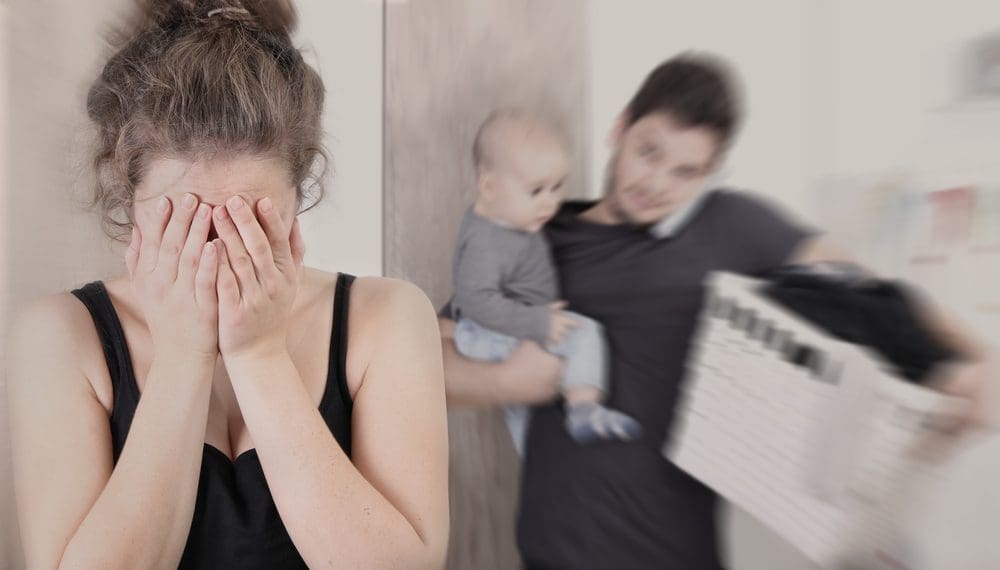Full Disclosure: Clicking on these links could mean a tiny commission for me, at no extra cost to you.
Becoming a mom comes with a whirlwind of emotions, including joy, love, exhaustion, and everything in between. While the focus often stays on the baby, it’s important to remember that your postpartum journey matters too. Postpartum mental health can be a tricky road to navigate, and for some, the struggles go deeper than sleepless nights and diaper changes. Addiction after childbirth is a challenge that doesn’t get talked about enough, but you’re not alone. Let’s unpack this hidden struggle with compassion and understanding, and explore ways to prioritize your well-being as you embrace this new chapter.
Advertisement
Feeling Stuck or Overwhelmed?
You don’t have to navigate it alone. With BetterHelp, you can connect with a licensed therapist who gets it, all from the comfort of your own space.
It’s flexible, private, and designed to fit into your life. Get matched in minutes and start feeling supported, whether you're managing anxiety, stress, or just trying to find your footing again. Plans start at $65/week. No waiting rooms. No judgment. Just real help, when you need it.
What Is Postpartum Depression and Anxiety?
Postpartum depression and anxiety are more than just the ‘baby blues’. They are serious and common mental health challenges that can affect new mothers after childbirth. While the ‘baby blues’ often involve short-lived feelings of sadness or mood swings, postpartum depression and anxiety run deeper and last longer. These conditions can leave moms feeling overwhelmed, isolated, anxious, or even hopeless during a time that’s supposed to feel joyful. Postpartum depression can bring about persistent sadness, loss of interest in activities, or difficulty bonding with your baby, while postpartum anxiety can lead to constant worry, racing thoughts, or even physical symptoms like a rapid heartbeat.
The good news? These struggles are manageable with the right support. Recognizing the signs and understanding what you’re experiencing are important first steps in seeking help and finding relief. You’re not alone in this—many mothers go through it, and there’s a whole network of resources and professionals ready to support you through it.
The Connection Between Mental Health and Addiction
The connection between mental health and addiction is a complex but important one to understand, especially for new mothers navigating the challenges of postpartum life. When mental health struggles like anxiety or depression arise, some may turn to substances or behaviors as a way to cope. While this might feel like a temporary relief, it can lead to dependency and create a cycle that’s difficult to break. Understanding this link is the first step toward recognizing the signs, seeking support, and finding healthier ways to manage postpartum mental health challenges. Remember, you’re not alone, and there’s always help available. Anchored Recovery Community is just one of the many centers that can help you overcome postpartum addiction.
The Effects on Mothers and Their Children
The effects of postpartum mental health struggles and addiction can be far-reaching, impacting not only mothers but also their children. For moms, it can lead to feelings of guilt, shame, and an overwhelming sense of isolation, making it harder to seek help. These challenges can also affect the bond between mother and child, potentially influencing the child’s emotional and developmental well-being. However, it’s important to remember that these effects are not permanent and support is available. By understanding these impacts, mothers can take steps toward healing and building a nurturing, healthy environment for both themselves and their little ones.
Effects on Mothers:
- Increased feelings of guilt and shame.
- Persistent sadness or hopelessness.
- Difficulty bonding with their baby.
- Heightened stress and anxiety levels.
- Physical health issues due to neglecting self-care.
- Increased risk of substance dependency or addiction.
- Isolation from family and friends.
- Difficulty managing daily tasks and responsibilities.
- Impaired decision-making and coping skills.
- Worsening mental health conditions if left untreated.
Effects on Children:
- Difficulty forming a secure bond with their mother.
- Increased emotional sensitivity or distress.
- Delayed emotional and social development.
- Higher risk of anxiety or depression later in life.
- Behavioral issues stemming from a lack of consistent nurturing.
- Potential exposure to an unstable home environment.
- Difficulty with trust and attachment in relationships.
- Reduced cognitive or academic development due to emotional stress.
- Greater likelihood of developing mental health challenges.
- Exposure to unhealthy coping mechanisms or behaviors.
The entire family dynamic often suffers, placing stress on partners and extended family members.
Signs Your Postpartum Mental Health May Be Struggling
Recognizing the signs of postpartum mental health struggles is the first step toward getting the help you need. While it’s normal to feel tired or overwhelmed after having a baby, some symptoms could point to deeper challenges like postpartum depression or anxiety. If you’ve noticed any of the following signs, it may be time to reach out for support:
- Persistent sadness or hopelessness.
- Intense feelings of guilt or worthlessness.
- Difficulty bonding with your baby.
- Constant worry or intrusive thoughts.
- Irritability or mood swings.
- Trouble sleeping, even when the baby is asleep.
- Physical symptoms like fatigue, headaches, or stomach issues.
- Loss of interest in activities you used to enjoy.
Support and Treatment Options
Help is available for women struggling with postpartum mental health and addiction. Recognizing the signs early and seeking professional care can make a difference.
Advertisement
⚡ Access Treatment Right Now
→ Online Therapy – Talk to a licensed therapist today through BetterHelp. Affordable, private, and convenient therapy starting at $65/week. Take the Free Assessment to get matched now.
→ Digital Psychiatry – Connect with a provider in 12–48 hours via Hims/Hers. Explore FDA-approved medication options — no insurance required. Get Started Today.
Counseling and Therapy
- Therapy, such as cognitive-behavioural therapy (CBT), helps women understand and manage their emotions.
- Group counselling allows mothers to connect with others facing similar challenges, reducing feelings of isolation.
- Digital therapy is an ideal option for new moms, as you can do it right from home. Our list of the best online therapy options can be found here.
Trauma-Informed Care
- Many rehabilitation centres now offer trauma-informed programs, which address the root causes of addiction while creating a safe and supportive environment.
Specialized Rehab Programs
- Some facilities, like Newgate 180’s women’s facilities, provide care tailored to mothers, including support for childcare concerns. These programs combine mental health treatment with addiction recovery.
Reducing Stigma and Encouraging Support
One of the biggest barriers to treatment is stigma. Many mothers fear being judged or seen as failures, which prevents them from seeking help. Society needs to create a more understanding and supportive environment where women feel safe to share their struggles.
Recovery is possible with the right resources and support. Sharing success stories of women who overcame similar challenges can inspire others to take the first step toward healing.
How to Support a Mom Struggling with Postpartum Mental Health
Supporting someone struggling with postpartum mental health can make a world of difference in their healing journey. Whether it’s your partner, friend, or family member, showing understanding and providing thoughtful support is key. Small gestures, like gifting practical or comforting items, can go a long way. Consider fidget rings, also known as spinner rings, for a calming tool that encourages peace, mindfulness and healthy coping. Fidget rings are super chic and help reduce anxiety through tactile distraction and fidgeting. Crystals for anxiety or worry stones can also serve as meaningful spiritual gifts for new moms, offering a sense of peace and positivity.
We offer a beautiful collection of gift sets for women, filled with healing stones, gemstone jewelry, relaxation gifts and more.
Discover thoughtful gifts and tools to support mental wellness at Anxiety Gone. From calming fidget rings and worry stones to healing crystals and gemstone jewelry, find everything you need to bring comfort and positivity to yourself or someone you care about. Shop now and take the first step toward brighter days!
Final Thoughts
Postpartum mental health and addiction are deeply connected, but help is available. Recognizing the signs and offering compassionate care can lead to better outcomes for mothers and their families. With resources like therapy, trauma-informed care, and specialized rehab programs, women can find the support they need to recover and thrive.
For those seeking compassionate care, Newgate 180’s women’s facilities also provide a safe space to start the journey toward healing.
Additional Resources
At Anxiety Gone, we believe in healing together. We’ve partnered with trusted wellness organizations to bring you the most effective tools, insights, and support. Some links may earn us a commission — always at no extra cost to you.
Join The Club
Connect with our private self-care community for daily support, exclusive tips, and inspiration. Join us today
Talk Therapy
Get matched with licensed therapists online through BetterHelp and begin your healing today. Start now
Hims/Hers
Receive personalized, affordable mental health care + medication from home — no insurance required. Learn more
Mental Health, Right to your Inbox
Subscribe to our newsletter for a place to rest your mental health and find ways to support your journey. Sign up
Emotional Freedom Technique
Tap your way to calm with scientifically backed stress relief. Our readers receive a 14-day free trial! Try EFT now
Mindfulness App
Access 2,000+ guided practices to support your mental health wherever you are + exclusive discount when you upgrade Try it
Online Breathwork
Experience calm and reset your nervous system with guided sessions and receive your first month free . Get started
Find a Helpline
If you need immediate support, visit our directory to find help near you. See helplines









